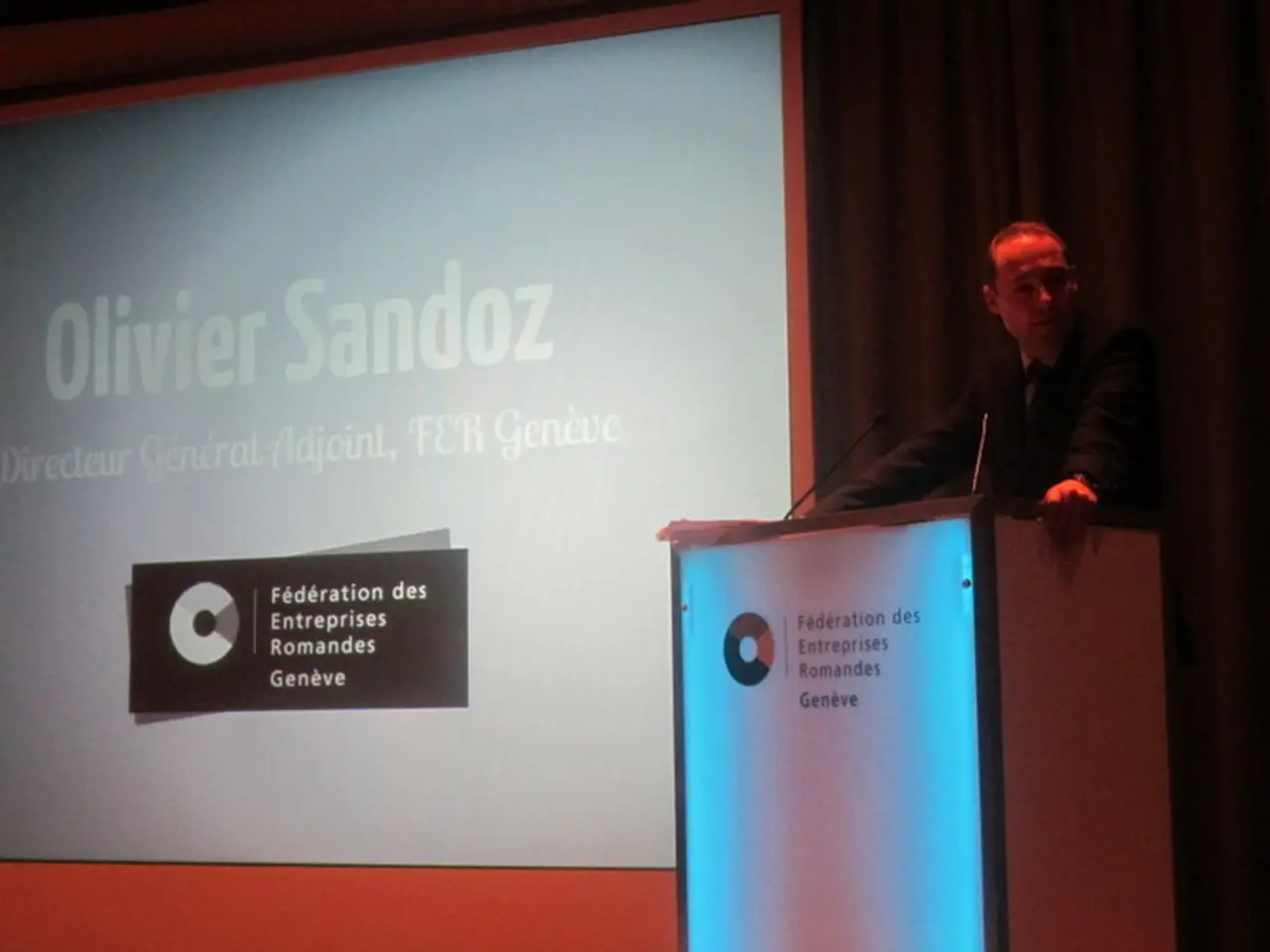U.S. Central Bank Loosens Restrictions on Cryptocurrency Operations by Banks
Federal Reserve Eases Crypto Regulations for U.S. Banks
The Federal Reserve, along with the FDIC and OCC, has issued a new joint guidance statement on July 14, 2025, clarifying regulatory expectations for U.S. banks engaging in crypto-asset activities. This move marks a significant shift in the regulatory landscape, treating crypto-assets as a financial asset class with comparable risk expectations to traditional assets.
The current guidance does not establish new approval processes or authorities for banks to hold crypto-assets. Instead, it aligns crypto safekeeping within the same legal and risk management framework used for traditional custodial assets. Banks may now hold crypto-assets in both fiduciary and nonfiduciary capacities, with heightened standards applicable in fiduciary cases.
Requirements for banks include maintaining exclusive control of cryptographic keys, ensuring robust cybersecurity, conducting due diligence on third-party custodians, and implementing comprehensive risk management frameworks addressing legal, operational, technological, and compliance risks. Compliance with the Bank Secrecy Act, AML, CFT, and OFAC rules is also emphasized, including proper customer agreements and oversight of third-party or sub-custodian providers.
The withdrawal of earlier guidance, including the 2022 requirement for banks to obtain prior written non-objection before engaging in crypto activities, was intended to reduce bureaucratic hurdles and support innovation, while maintaining supervision over risks during routine bank examinations.
The American Bankers Association looks forward to working with the Fed and FDIC in the fast-evolving crypto-asset marketplace. The Federal Reserve will work with the agencies to consider whether additional guidance to support innovation, including crypto-asset activities, is appropriate.
This approach reflects a shift toward normalizing crypto-assets as a financial asset class, supporting a balance of oversight and innovation. However, some critics, including popular podcaster Joe Rogan, have expressed shock that meme coin pump and dump scams remain largely unregulated. The SEC's stance under the Biden administration has been extreme, and it remains to be seen whether the pendulum swings too far the other way.
The withdrawal of the letters followed a letter from Republican members of the U.S. House Financial Services Committee, characterizing the supervisory non-objection process as a method to "stonewall financial institutions" and prevent them from engaging with distributed ledger technology (DLT). The timing of these letters made sense due to the crypto crash that followed the 2022 collapse of the Terra algorithmic stablecoin, which resulted in the mass withdrawal of funds at Silvergate Bank.
In the wake of the collapse of Signature Bank, which was partly related to crypto, bank executives disputed the assertions. The OCC and FDIC had already cancelled the requirements to get permission for crypto-asset activities. The CFTC and SEC have adopted different approaches to crypto under the new Trump administration.
American Bankers Association President and CEO Rob Nichols stated that today's announcement is a step toward achieving the goal of ensuring consumers can access crypto-asset products and services through their trusted bank relationships. The withdrawn advisories required banks to inform the Fed of planned activities in advance or receive a non-objection letter. The 2023 letter, SR 23-8, established a supervisory non-objection process for state member banks involved with tokens using distributed ledger technology.
However, the SEC has washed its hands of supervising most meme coins, leaving a gap in the regulatory landscape. The FDIC's responses to freedom of information requests, combined with the lack of services launched by banks, largely support this assertion. As the regulatory landscape continues to evolve, it is crucial for all parties involved to maintain a balance between oversight and innovation to ensure the safety and security of the financial system.
- Banks may now hold crypto-assets, treated as a financial asset class, under the new guidelines issued by the Federal Reserve, FDIC, and OCC, implementing comprehensive risk management frameworks for the safekeeping of these assets.
- The relaxation of earlier regulations, such as the requirement for banks to obtain prior written non-objection before engaging in crypto activities, was intended to encourage innovation and reduce bureaucratic hurdles.
- The American Bankers Association, working with the Fed and FDIC, aims to support the fast-evolving crypto-asset marketplace, ensuring consumers can access crypto-asset products and services through their trusted bank relationships.
- As the regulatory landscape continues to evolve, it is crucial for maintaining a balance between oversight and innovation to ensure the safety and security of the financial system, particularly in light of the unregulated meme coin market.




